
At this pivotal juncture in history, we bear witness to a substantial shift in the paradigm of entrepreneurship. The conventional outlook centered on the individual is being shaped by societal, technological, and cultural forces, propelling us into a new entrepreneurial era. The quest for innovation, collaboration, and societal impact has transcended the boundaries of individualism, giving rise to an entrepreneurial landscape that is more inclusive, interconnected, and interdependent than ever before. This movement reflects a society in transformation, where entrepreneurs aspire not only to personal success but also to contribute to a greater societal good. The conference serves as a dedicated forum for the exploration of these emerging trends.
Join us on this intellectual and practical journey toward a deeper understanding of the entrepreneurial trends that will shape the future. We extend a warm welcome to all attendees joining our conference dedicated to exploring the possibilities and challenges of entrepreneurship in a post-individualist era. Over the course of two days, we will convene brilliant minds, visionary researchers, business leaders, and social innovators to analyze, debate, and unravel the contours of this new entrepreneurial paradigm.
Our esteemed keynote speakers will provide unique perspectives on how entrepreneurship is evolving in an era where collaboration, sustainability, and interconnectedness are fundamental values. Additionally, there will be sessions dedicated to the presentation of scientific articles that delve into these trends and their influence across various sectors of the global economy.
The roundtable discussions will provide a space for profound debates, where experts will discuss the opportunities and challenges faced by entrepreneurs in this new era. This event aims not only to offer valuable insights but also to foster connections and partnerships that will drive a more diversified and collaborative entrepreneurial community.
The program includes plenary sessions/round tables, parallel sessions, and poster presentations. The abstracts will be published in a book of abstracts with ISBN, and the complete version of the articles presented at the conference will be published in a Book of Proceedings with ISBN.
Select articles will be published in a special issue of the Scopus-indexed Social Sciences & Humanities Open (SSHO) journal (see SSHO Special Issue Proposal Form). Authors of the best articles will have a fast-track publication opportunity in the Journal of Entrepreneurial Researchers (JER), partner of the OSEAN research center.
Establishing bridges and contributing to the crossing of knowledge, we call on academics, teachers, and researchers to present their work at this event.
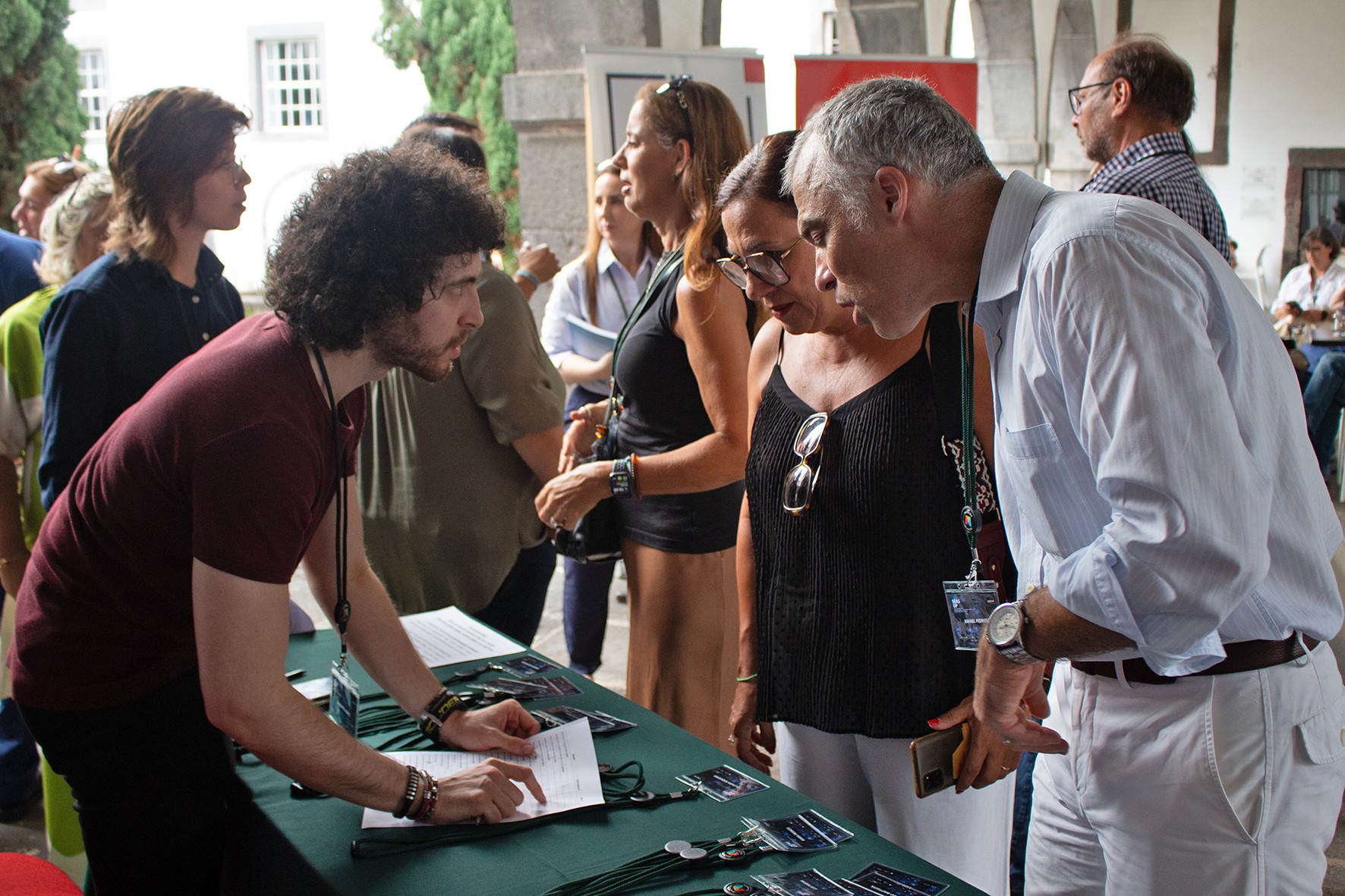
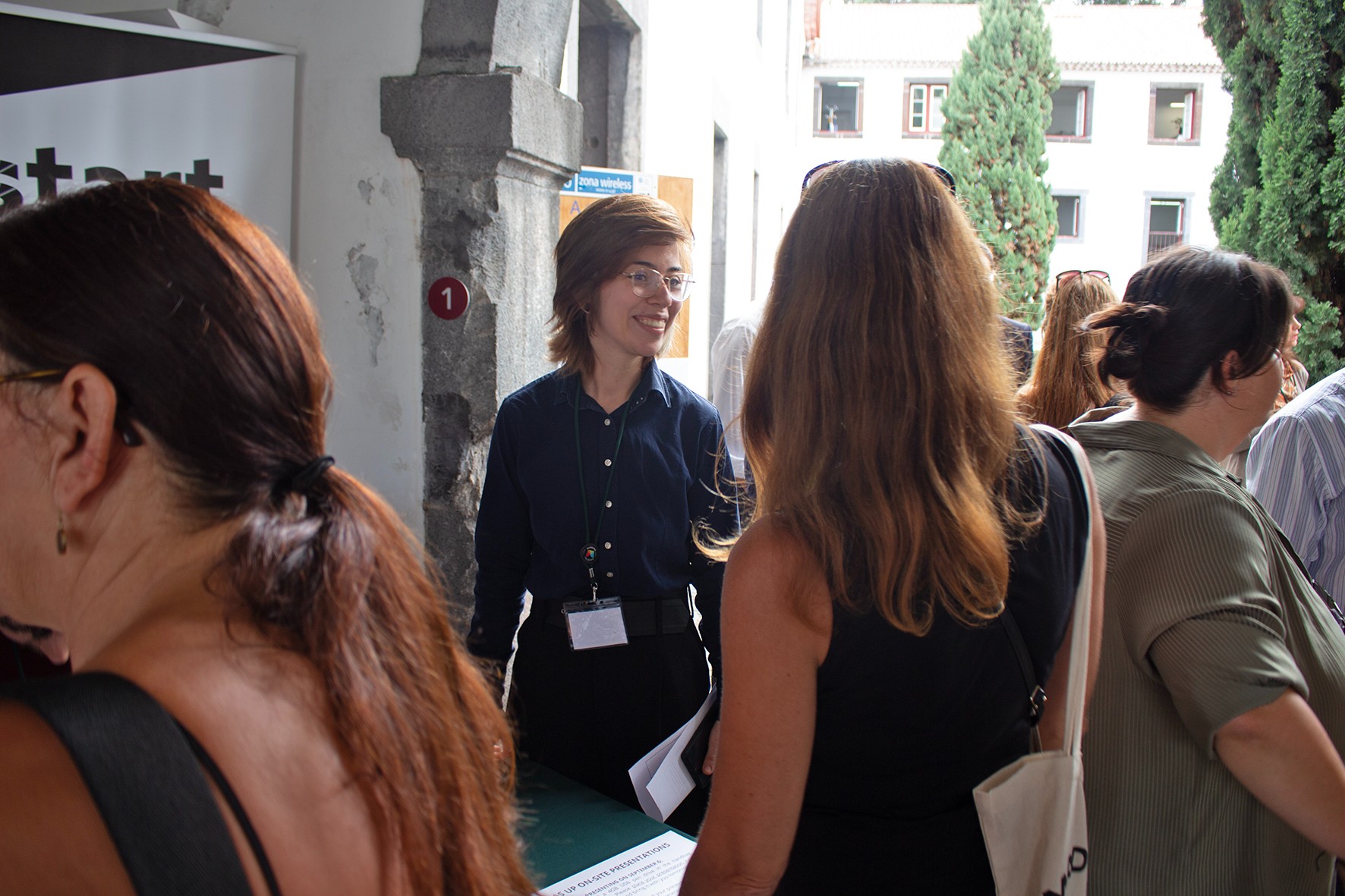
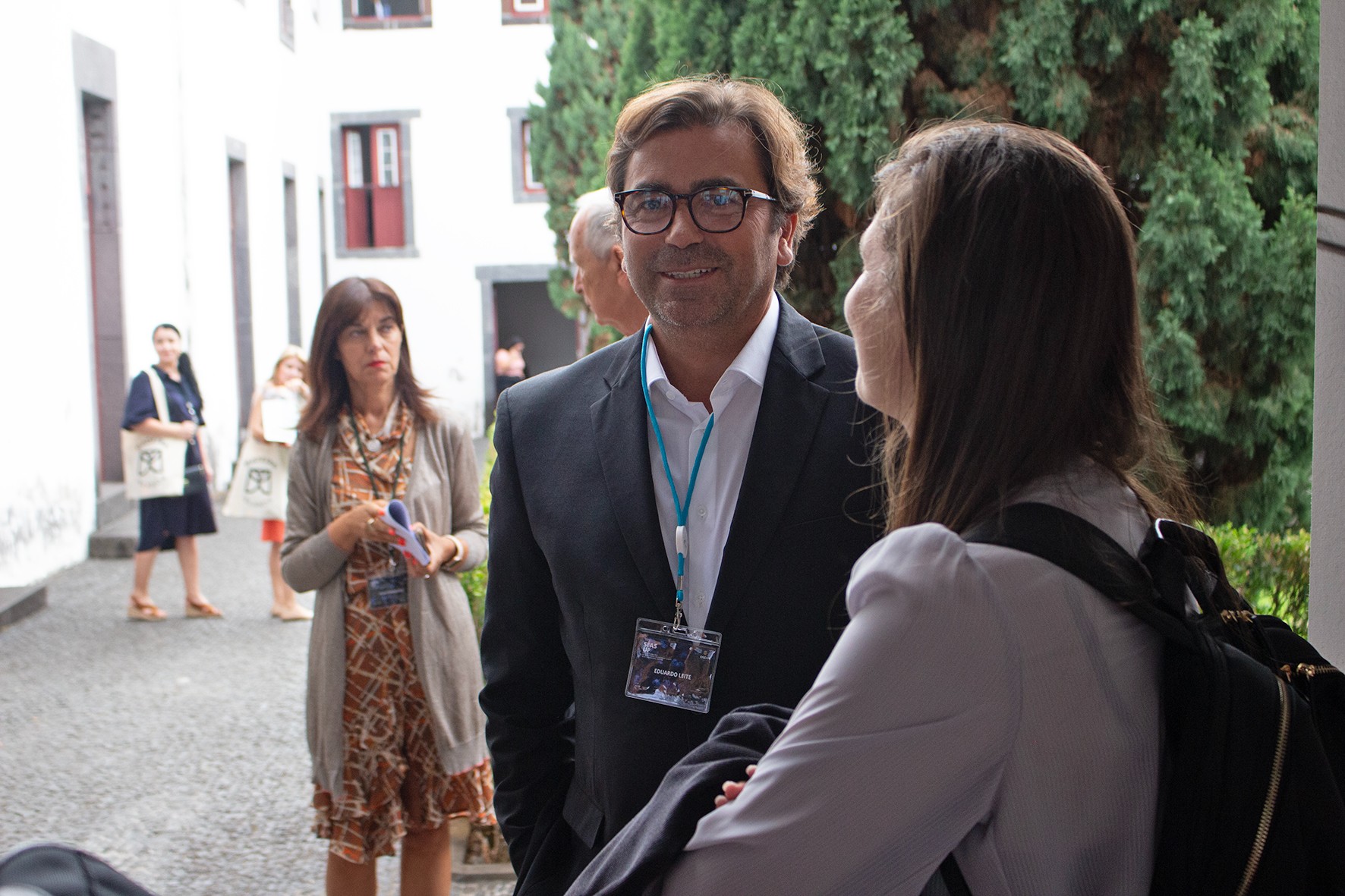
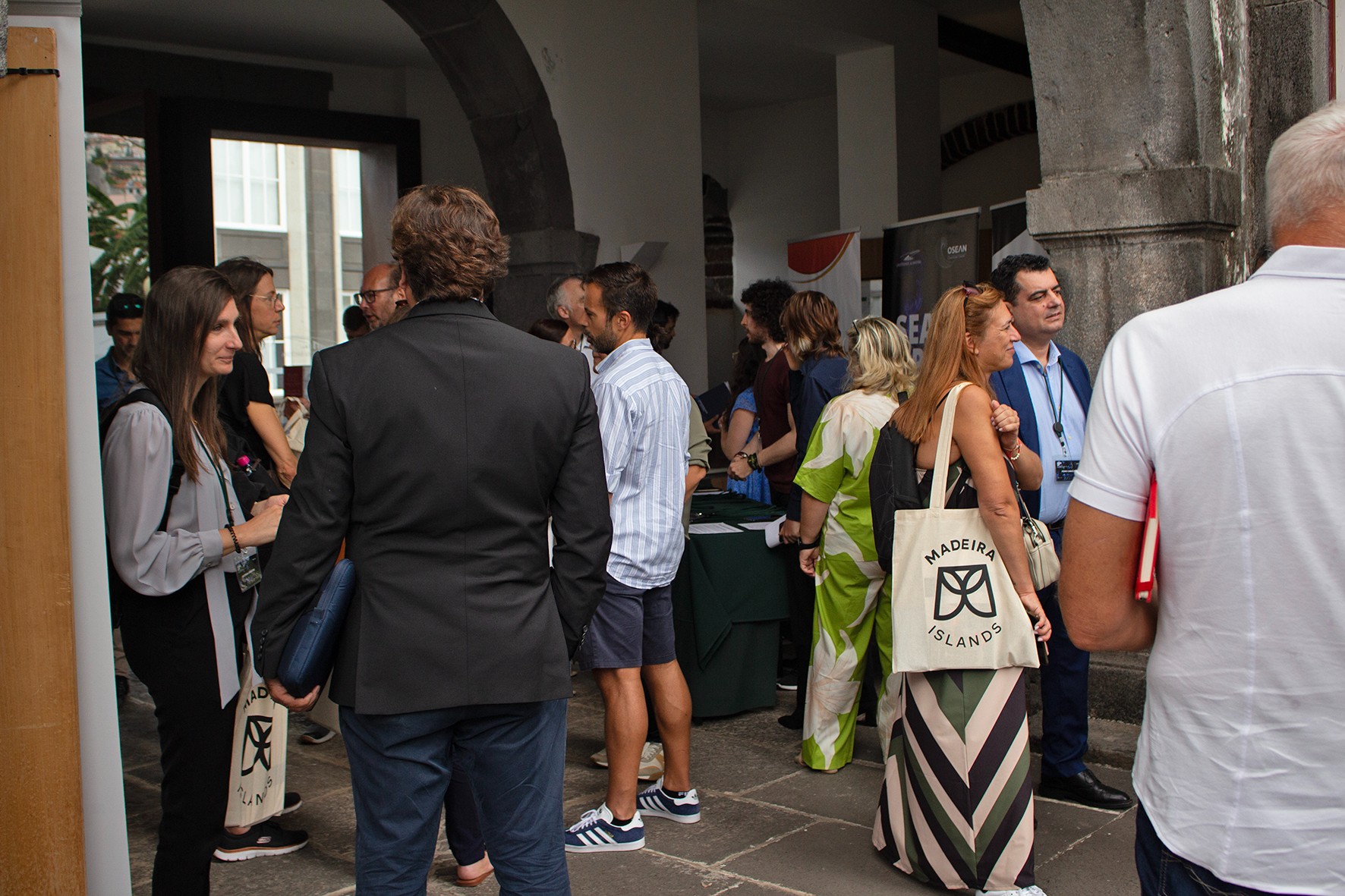
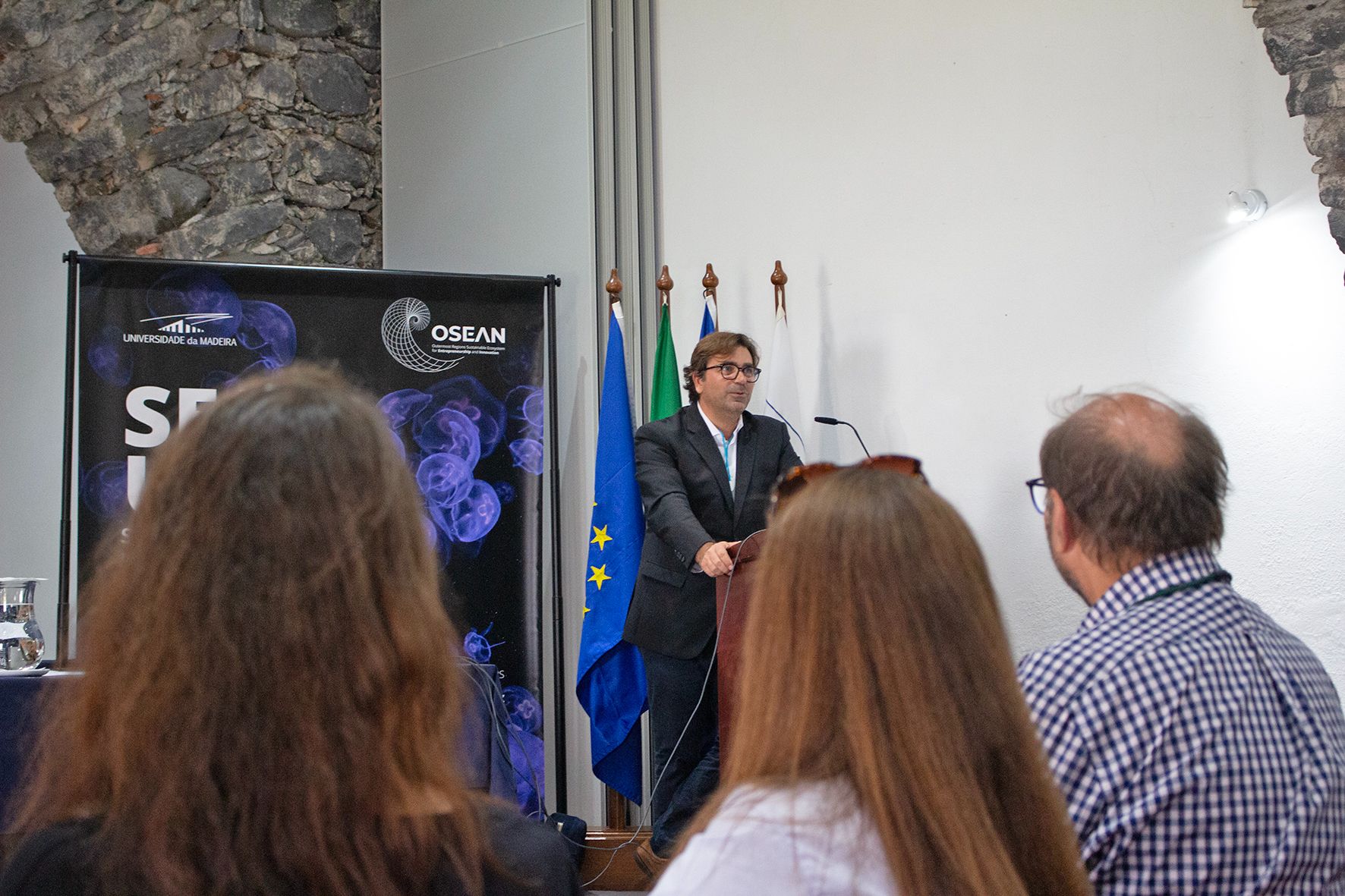
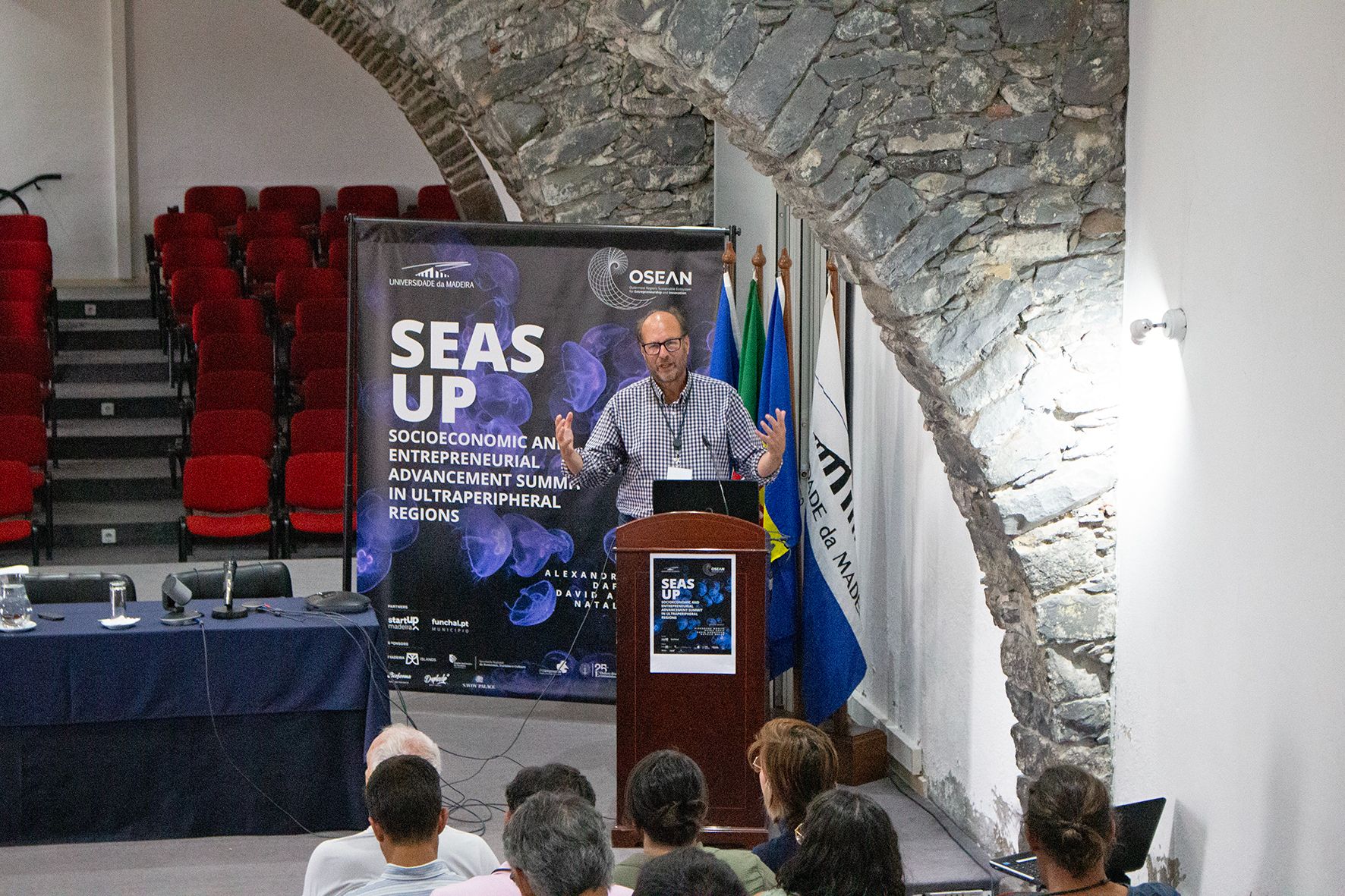
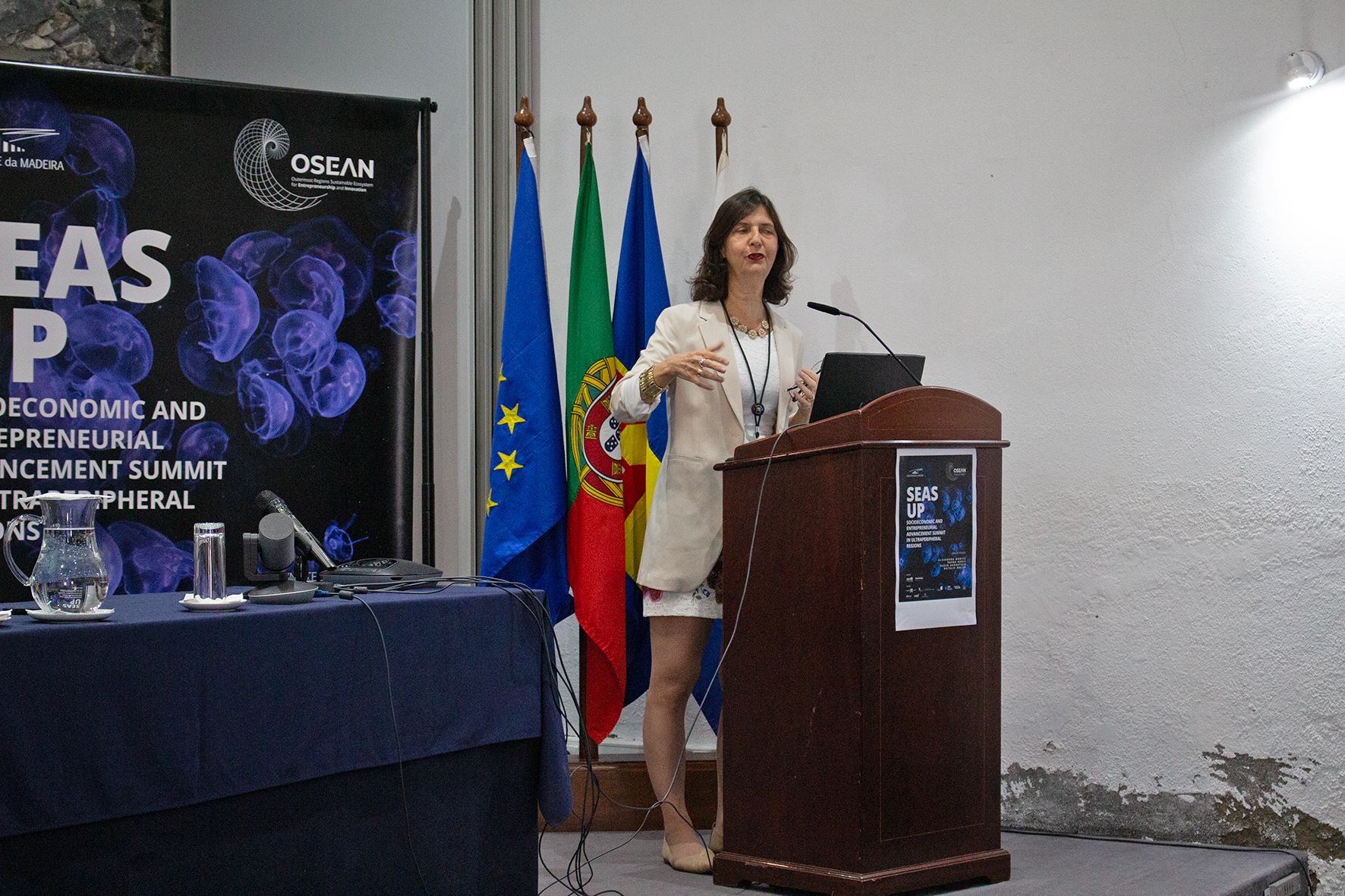
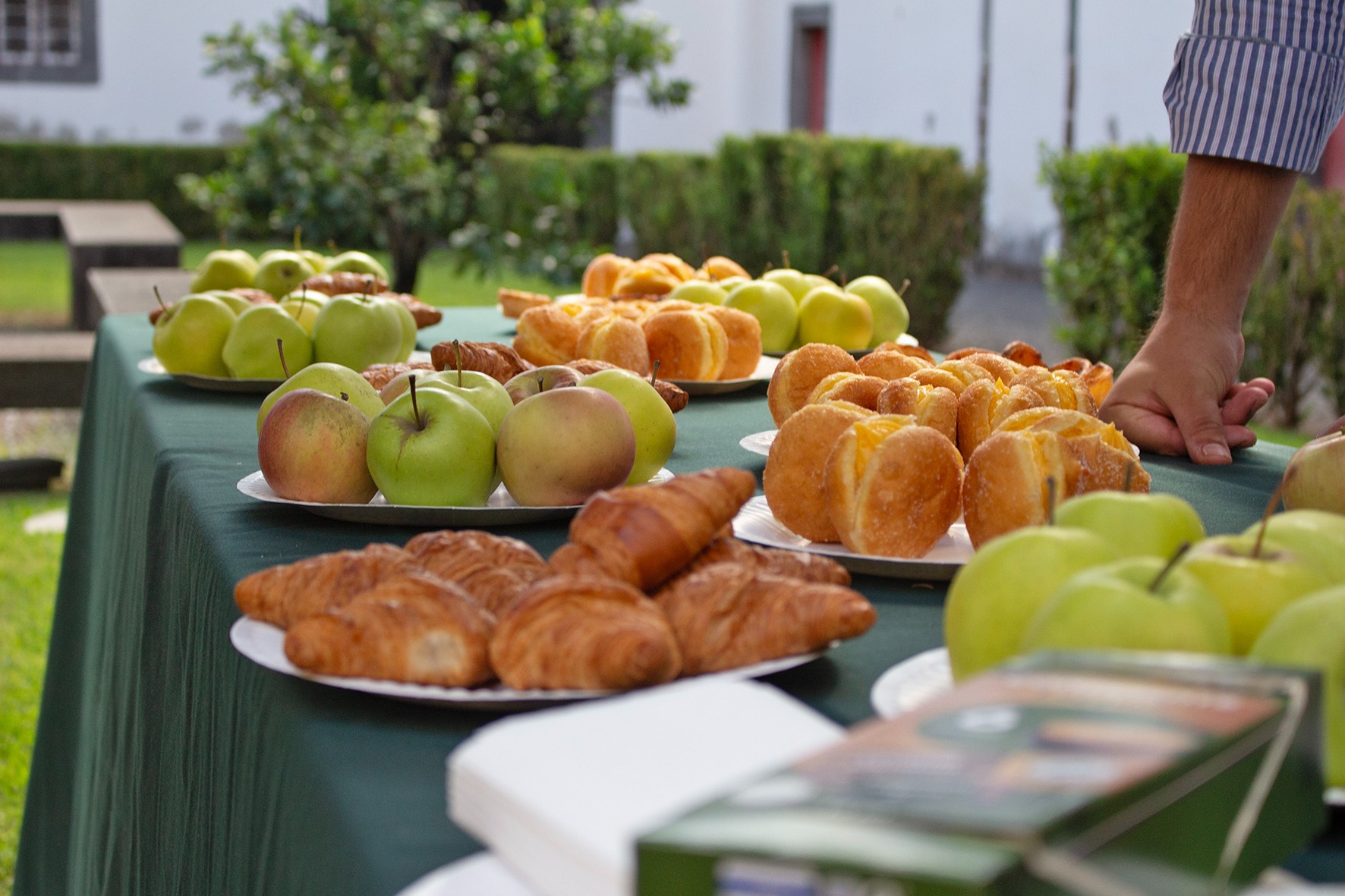
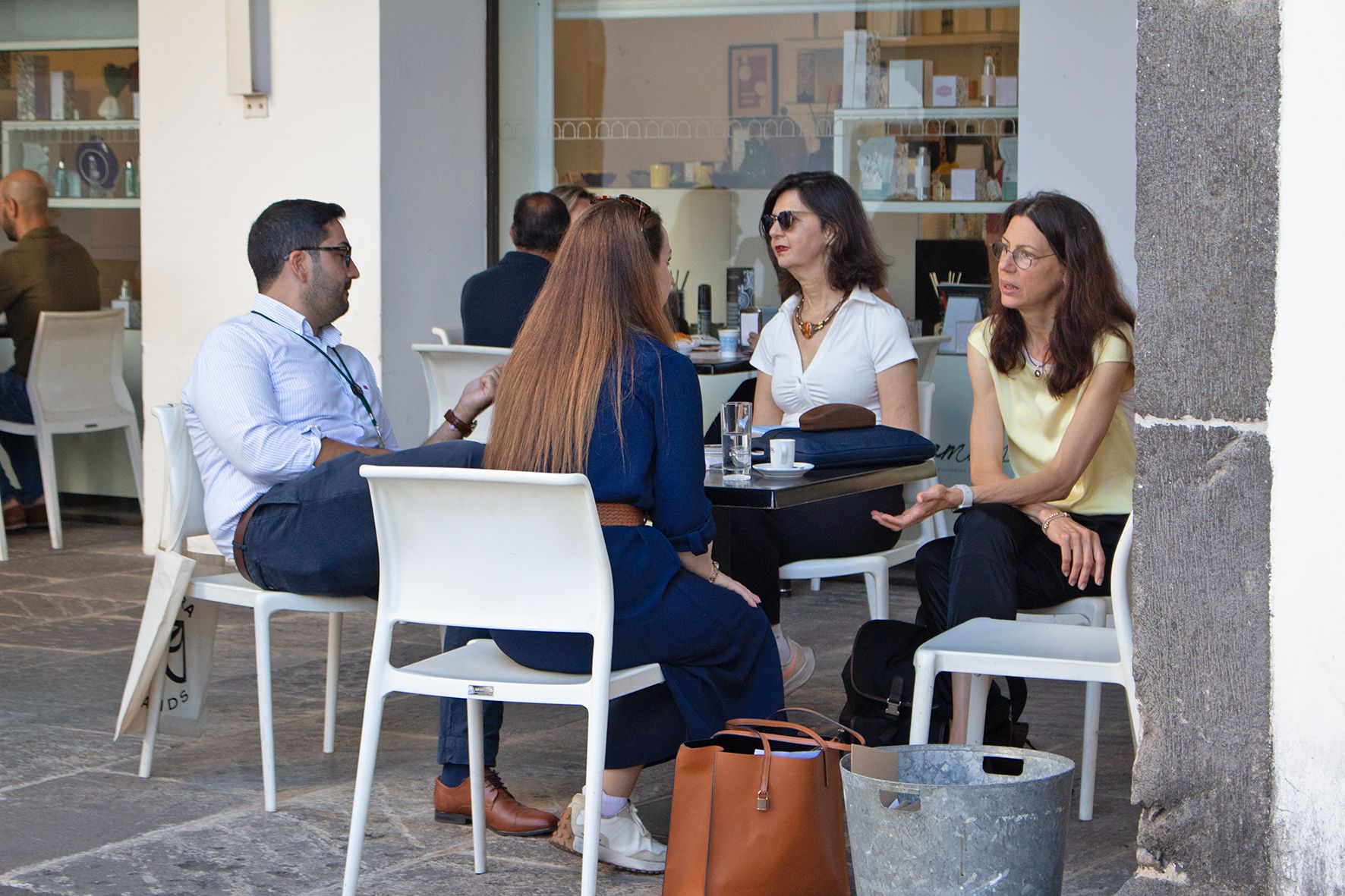
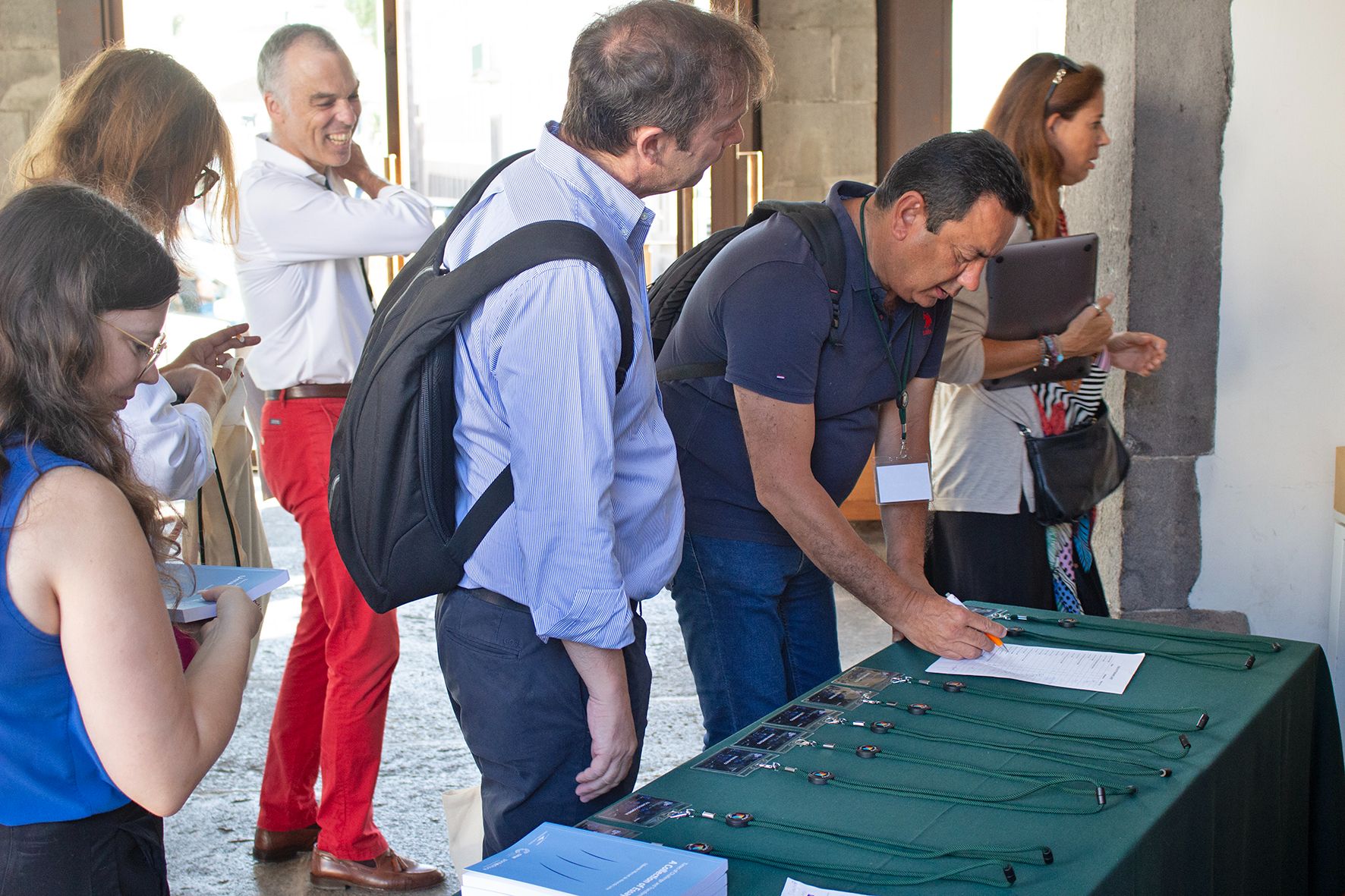
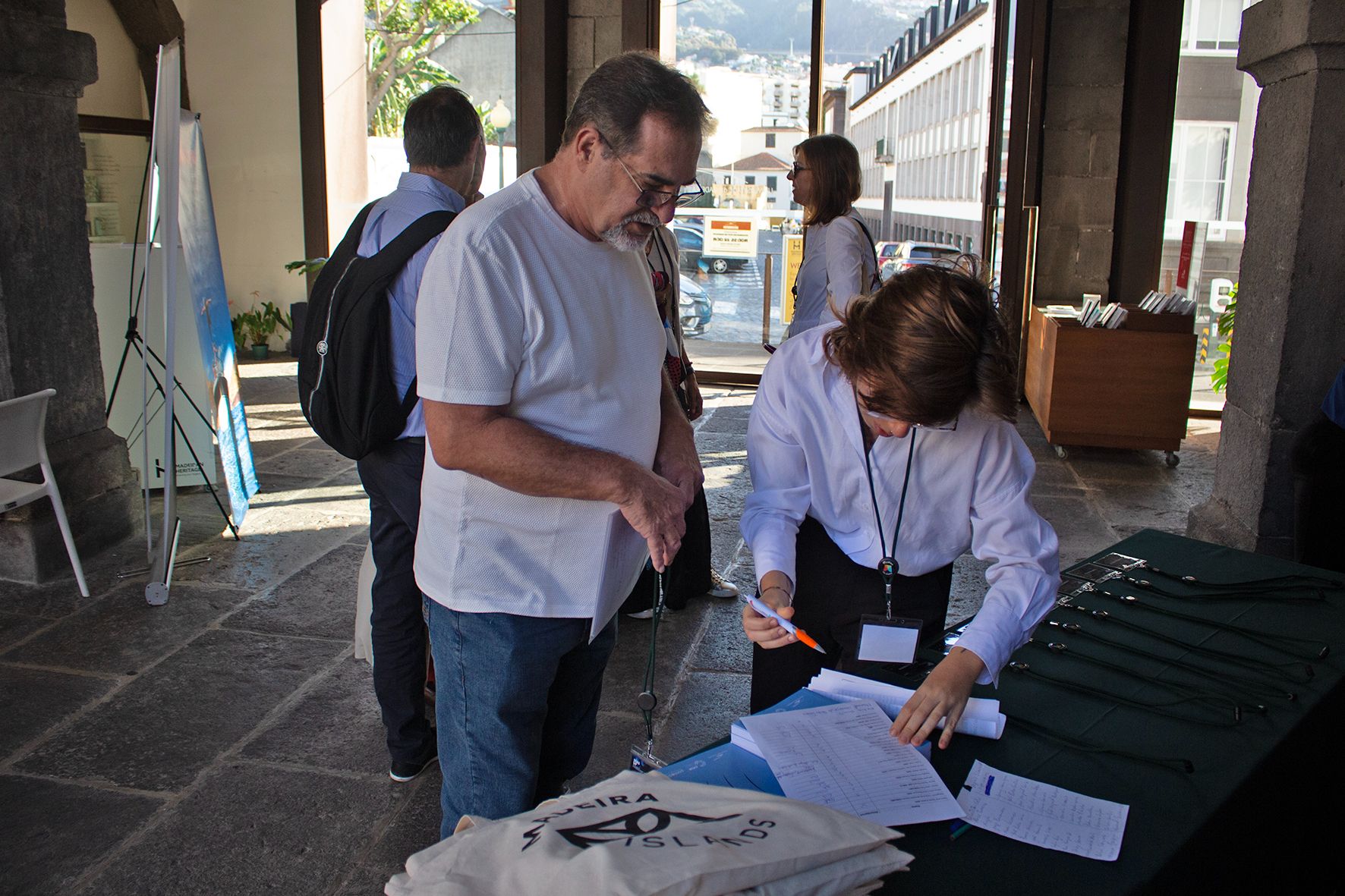
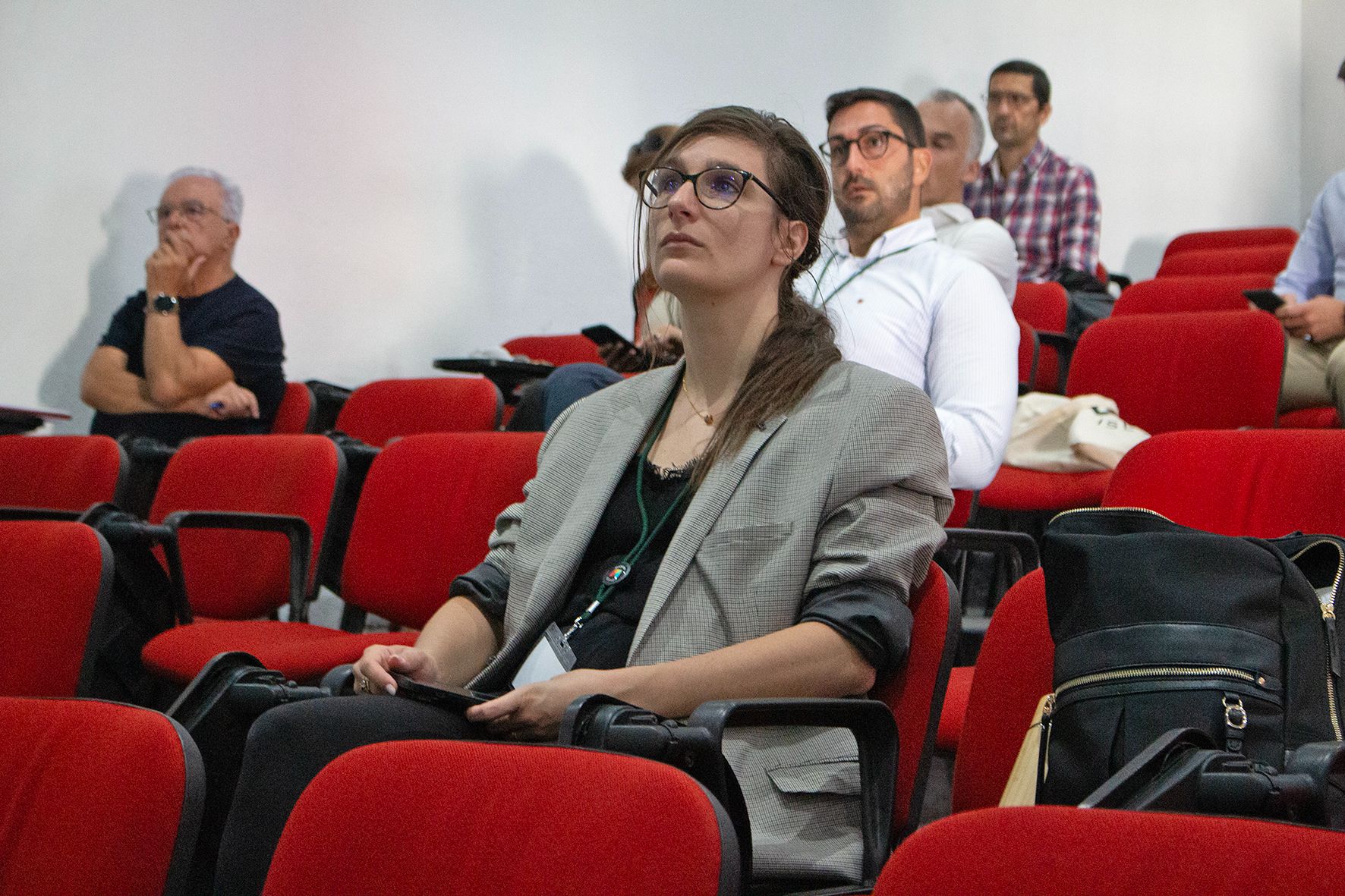
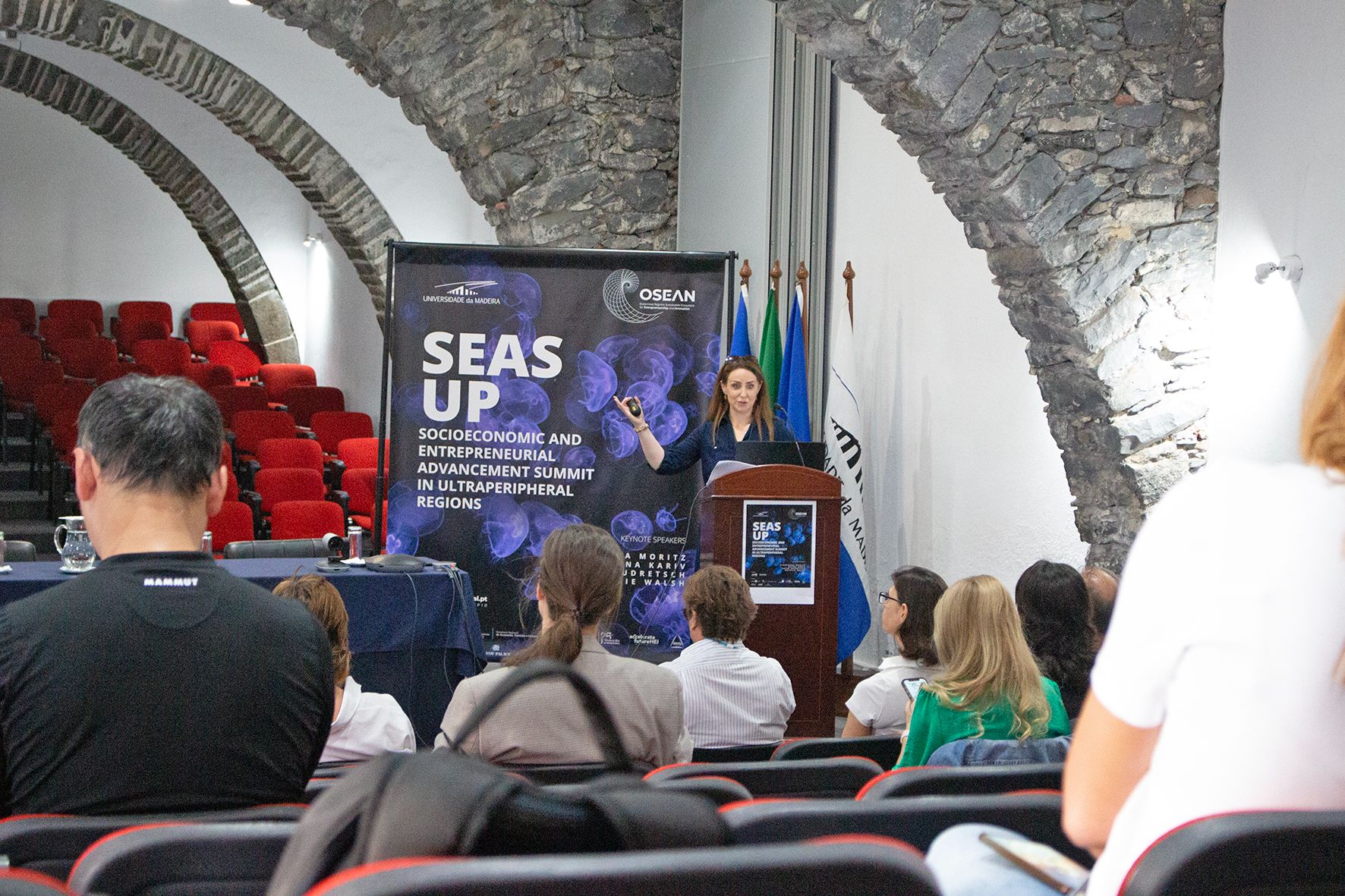
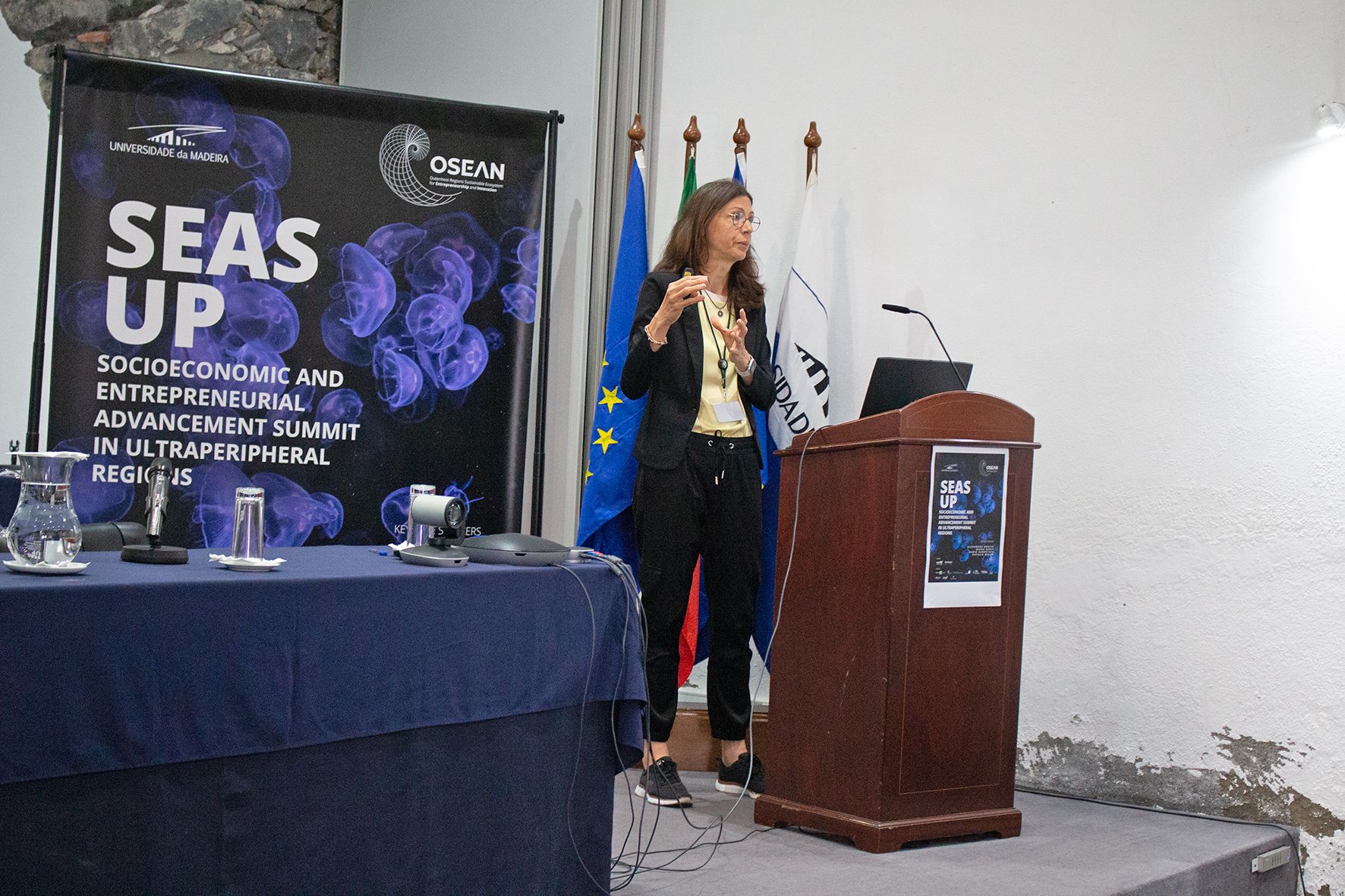
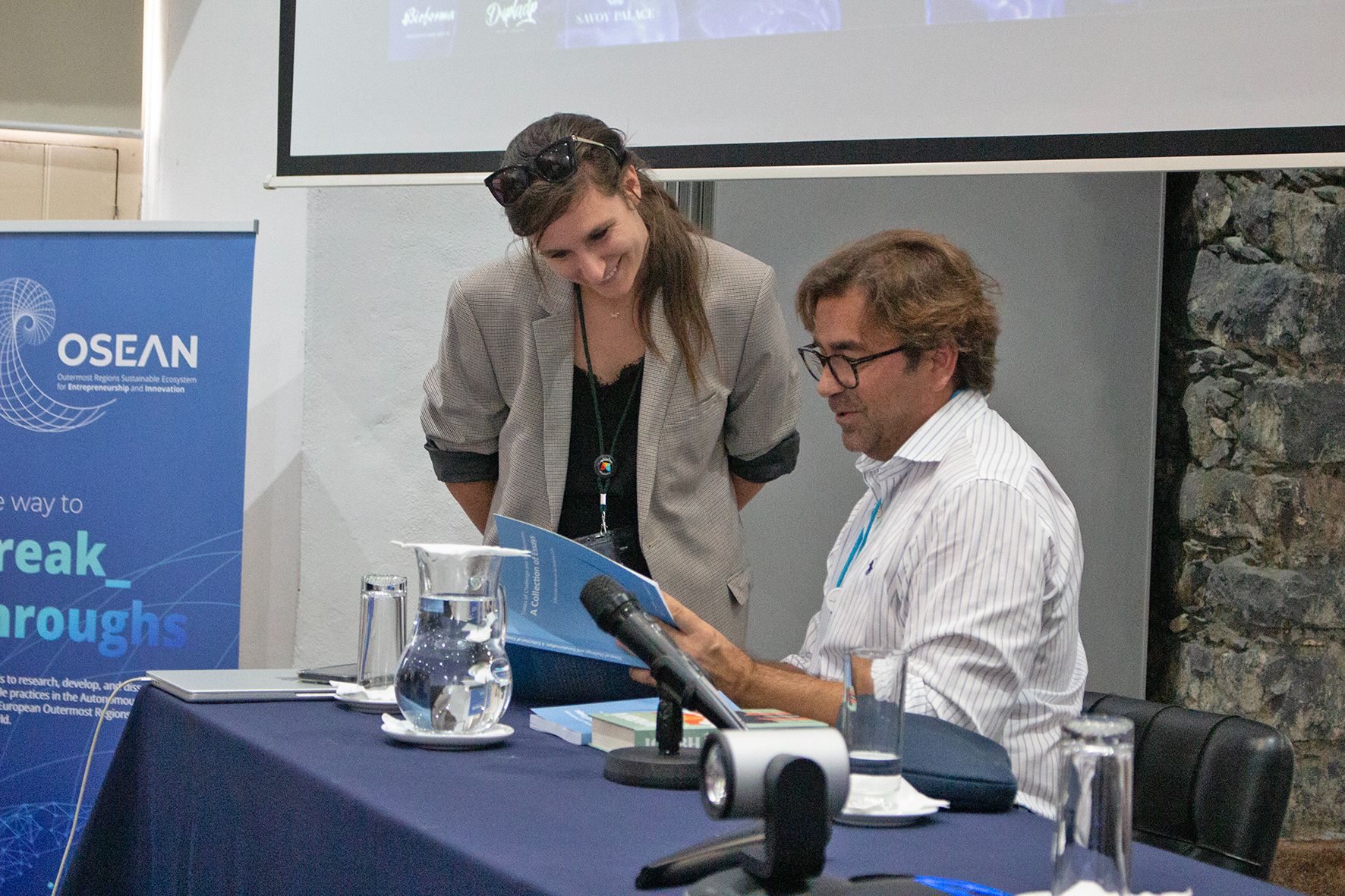
FIRST DAY (SEPTEMBER 5)
TIME | ACTIVITY |
2:30 p.m. | Check-in University of Madeira’s Jesuit College |
2:45 p.m. | Opening remarks and kick-off Elsa Fernandes | University of Madeira Vice-Rector |
3 p.m. | Making a Miracle: Fauda and Entrepreneurial Resilience David Audretsch | Indiana University Bloomington |
3:45 p.m. | Entrepreneurship research rocks! Generating new insights from generative AI Dafna Kariv | Reichman University |
4:30 p.m. | Coffee break |
5 p.m. | Round table Elsa Fernandes | University of Madeira |
5:40 p.m. | Day 1 conclusion: recap of activities and information about the next day |
SECOND DAY (SEPTEMBER 6)
TIME | ACTIVITY |
9:30 a.m. | Opening remarks and day schedule presentation |
9:45 a.m. | Empathy at the Edge: Lessons from embedding empathy as a core skill in entrepreneurship Natalie Walsh | University of Galway |
10:30 a.m. | Startups as Drivers of Change: Innovative Solutions for more Sustainable Ecosystems Alexandra Moritz | University of Koblenz |
11:15 a.m. | Coffee break |
11:45 a.m. | Presentation of Eduardo Leite’s book Natalie Walsh | University of Galway |
12:30 p.m. | Lunch break |
3 p.m. | Afternoon event by the University of Madeira Poster and scientific article presentations Coffee break from 4:30 p.m. to 5 p.m. |
7 p.m. | Review of the event and closing remarks |
8:30 p.m. | Gala dinner (Enseada Food and Drinks, Funchal Naval Club) |
CODE | TITLE | AUTHOR(S) |
seasup24108 | Entrepreneurship and Innovation in Ultraperipheral Regions — A Bibliometric Survey | Pato, M. |
seasup24125 | Reinforcing Education for Entrepreneurship in Higher Education Institutions: Poliempreende — Polientrepreneurship Innovation Network | Vieira, A. R. |
seasup24127 | Navigating the Blue: Storytelling, Poetics, and Rhetoric in Oceanic Advertising | Sousa, V. |
seasup24104 | Promoting Entrepreneurial Attitudes in Higher Education in Portugal and Brazil | Trevelin, A. |
seasup24105 | Navigating Entrepreneurial Education: Integrating Design and Creative Thinking in University Curricula | Ribeiro, M. |
seasup24106 | A Case Study of Introducing GreenComp Ideas in Entrepreneurship Education for Engineers | Christou, A. |
seasup24107 | Exploring the Nexus Between University Environment and Entrepreneurial Potential Among Portuguese Students: A Comprehensive Analysis | Carvalho, C. |
seasup24109 | Slowly Running Out of Money: The Impact of the Access to EU Funds on the Entrepreneurial Dynamics in Madeira | Almeida, A. |
seasup24110 | Socio-Cultural Factors on University Graduate’s Entrepreneurship Intention | de Freitas, C. |
seasup24111 | Entrepreneurship as a Factor of Economic Convergence: A Panel Data Analysis for OECD Countries | Proença, S. |
seasup24113 | Analysing Accelerators using the CIMO Framework: Evidence from the Madeira Startup Retreat Acceleration Program — 6th Edition | Pereira, J. |
seasup24114 | Social Representations of Entrepreneurship Among Nursing Students in Brazil | Marques, S. |
seasup24115 | Innovation and Entrepreneurship Profiles Among Nursing Students: An Empirical Study on Competencies and Social Representations | de Oliveira, D. |
seasup24116 | An Analysis of the Efficiency of a Project Applied to 13 Higher Education Institutions | Sequeira, O. |
seasup24117 | The Relationship Between Investment in Higher Education and the Birth and Survival Rate of Companies: A Comparison of Efficiency Between European Countries | Teixeira, F. |
seasup24118 | Developing a Reusable Model for Business Venture Survival: Insights from Cognitive Mapping and ISM | Correia, R. |
seasup24120 | Developing Entrepreneurial Competencies in Higher Education Students: An Empirical Study | Baylina, P. |
seasup24121 | Predicting the Value of Innovation and Entrepreneurial Skills: The Role of Motivation to undertake | Almeida, I. F. |
seasup24122 | The Impact of an Entrepreneurial Innovation Course on Higher Education Health Students’s Innovation/Entrepreneurial Competencies: A Pre- and Post-Interventional Study | Parreira, P. |
seasup24124 | Evaluation of the Usability of a Prototype Pajama for Pressure Injury Prevention by Caregivers | Parreira, P. |
seasup24128 | MusclePen: A Customized and Independent Medication Management | Gomes, J. |
Presentation Title: Making a Miracle: Fauda and Entrepreneurial Resilience 
David Audretsch is a Distinguished Professor and the Ameritech Chair of Economic Development at Indiana University, where he also serves as director of the Institute for Development Strategies. He is an Honorary Professor of Industrial Economics and Entrepreneurship at the WHU—Otto Beisheim School of Management in Germany and a part-time professor of entrepreneurship at the University of Klagenfurt in Austria.
Audretsch’s research has focused on the links between entrepreneurship, government policy, innovation, economic development, and global competitiveness. He is co-author of The Seven Secrets of Germany, published by Oxford University Press. He is co-founder and Editor-in-Chief of Small Business Economics: An Entrepreneurship Journal. He was recognized as a 2021 Clarivate Citation Laureate and awarded the Global Award for Entrepreneurship Research by the Swedish Entrepreneurship Forum. He has received honorary doctorate degrees from the University of Augsburg in Germany, Jonköping University in Sweden, and the University of Siegen in Germany. Audretsch was also awarded the Schumpeter Prize from the University of Wuppertal in Germany.
Audretsch has served as an advisory board member to a number of international research and policy institutes, including Chair of the German Institute for Economic Analysis Berlin; Chair of the Foundation for the Promotion of German Science in Berlin, Germany; the Center for European Economic Research in Mannheim, Germany, the Basque Institute of Competitiveness in San Sebastian, Spain; National Academies of Sciences, Engineering and Medicine, Washington, D.C., the Swedish Entrepreneurship Forum in Stockholm, Sweden; and the Jackstädt Centre for Entrepreneurship in Wuppertal, Germany.
Presentation Title: Entrepreneurship research  rocks! Generating new insights from generative AI
rocks! Generating new insights from generative AI
Professor Dafna Kariv is full-time faculty member at the Adelson School of Entrepreneurship, Reichman University (former IDC), Herzliya, the Head of the dual degree of Entrepreneurship-Business Administration, and the Chair of the School’s research Commission. Professor Kariv is also Affiliate Professor at HEC, Montreal, Canada.
Prof. Kariv is the author of seven academic books, published by Routledge UK, Routledge, NY and Edward Elgar, UK, on female entrepreneurship, social entrepreneurship, educating entrepreneurship, and startups navigating crises. She has published numerous papers in entrepreneurship in academic journals, with research teams from Canada, Europe and US. She is a member of the editorial boards of two prestigious journals in entrepreneurship, and the Israeli Council of Higher Education’s evaluator of entrepreneurial programs in academic institutions in Israel.
Presentation Title: Startups as Drivers of Change:  Innovative Solutions for more Sustainable Ecosystems
Innovative Solutions for more Sustainable Ecosystems
Alexandra Moritz is a full-time Professor and the Program Director of Entrepreneurship Studies at the University of Applied Sciences in Koblenz, Germany. She serves as the Vice Dean of the Department of Business Administration and holds various other academic positions, including membership on the university’s Research Center steering committee and scientific advisory boards at various institutions.
Before her transition to academia, Alexandra dedicated a decade to the international banking industry, where she focused on mid-sized companies and held several management positions. Her industry experience inspired her to pursue a PhD in Entrepreneurship, followed by a postdoctoral position at the University of Trier, Germany. There, she directed the research center for small and mid-sized firms, coordinated interdisciplinary entrepreneurship initiatives, and established an academic incubator.
Currently, Alexandra co-leads the project StartUpLab@FH in Koblenz, funded by the German Federal Ministry of Education and Research (BMBF), which aims to foster an entrepreneurial mindset across various academic disciplines. She has played a key role in establishing creativity and prototyping rooms and activities that support students in developing their entrepreneurial skills and advancing their projects.
Her research focuses on entrepreneurship, specifically entrepreneurial finance, crowdfunding, and social entrepreneurship, and has been published in esteemed peer-reviewed academic journals. Additionally, she contributes to the academic community by serving as an editor for book volumes and journal issues, as well as a reviewer for numerous peer-reviewed journals and conferences.
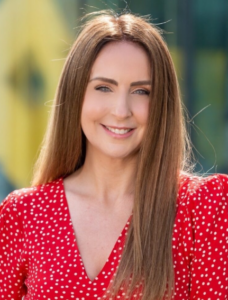
Presentation Title: Empathy at the Edge: Lessons from embedding empathy as a core skill in entrepreneurship
Dr. Natalie Walsh is the Director of Entrepreneurial Development at the University of Galway. She has worked in higher education for over sixteen years with senior roles in Research, Innovation, and Entrepreneurship, spanning areas including ecosystem development, research and innovation clusters, and role identity theory of academic entrepreneurs.
Natalie’s experience and expertise spans areas including leadership, strategic planning, project and grant management, finance, and human-centered design. Natalie holds an MSc in Strategy, Innovation and People Management from the University of Galway and has completed her Ph.D. in Trinity College Dublin using role identity theory to explore the paradox of academic researchers commercializing their research.
Natalie, together with her team, is leading two significant projects focused on transformation change with the University. Designing Futures is a HEA funded project focused on transforming the student experience. The second project is a European Institute of Technology award, which focuses on international innovation capacity building with a strong focus on structural and system changes to support innovation and entrepreneurship across the projects respective to entrepreneurial ecosystems. Idea to Impact (i2i) will also create a suite of programs and training for students, staff, and alumni across West Ireland, Greece, Spain, Bulgaria, and Slovakia.
Additional projects within Natalie’s portfolio include EIT Health-funded projects such as Women Entrepreneurship Bootcamp, SCI FI, Innovation Days, and ENERGHY.
ACTIVITY | DATE |
Deadline for extended abstract and (digital) poster submission | July 25, 2024 |
Author notification limit | July 31, 2024 |
Deadline for registration of at least one author per abstract | July 31, 2024 |
Deadline for registration of participants without communication | July 31, 2024 |
Holding of the conference | September 5 and 6, 2024 |
Deadline for final manuscript submission | September 30, 2024 |
Editorial acceptance deadline | December 31, 2024 |
Deadline for Conference Proceedings publication | December 31, 2024 |
Our mission is to foster an interdisciplinary platform that explores and propels entrepreneurial innovation within a collaborative ecosystem.
We envision a future where entrepreneurship transcends individual boundaries, embracing interconnectedness and sustainability. Our vision is to become a leading catalyst, inspiring a new breed of entrepreneurs who champion innovation, ethical practices, and social responsibility on a global scale.
Collaboration; Inclusivity; Ethical Entrepreneurship; Knowledge Exchange.
Abstract submissions will be accepted in the following areas:
Economics:
Management:
Entrepreneurship:
Technological Innovation:
CATEGORY | EARLY BIRD REGISTRATION (ENDED MAY 12) | NORMAL REGISTRATION |
Participant with in-person presentation/poster | €125 | €135 |
Participant with online presentation/poster | €100 | €115 |
Student with in-person/online presentation/poster | €60 | €65 |
Full article/abstract publication (with presentation) | €200 (€125 if 2nd publication) | €225 (€125 if 2nd publication) |
Full article/abstract publication (without presentation) | – | €150 |
Abstract publication (with presentation) | – | €175 |
Spectator/co-author only | €40 | €50 |
Gala dinner (per person) | – | €60 |
Registration for participation provides:
The registration fee will be per submitted article and/or abstract.
Registration in the listener modality includes only access to the conference and Certificate of Participation as a Listener.
In no case, including withdrawal of participation or mistake by the participant, does the organization undertake to return or cancel payments received, or even return the amounts paid.
The abstract can be presented individually or in a group (up to four people—with one single author and the others as co-authors).
Each participant can present up to a maximum of three (3) abstracts, being the author of only one (1) and participating in the others as a co-author.
The works must be original and unpublished (never presented or published) and should not be under evaluation at any other event.
After the approval of the abstract by the scientific committee, all authors must register for the event (Failure of registration by any of the authors invalidates the continuation of the abstract’s participation in the Conference).
After the submission of the abstract, no inclusions and/or alterations of authors and/or contents will be accepted.
Types of Manuscripts:
Identification and Publication Consent Forms:
Manuscript Length:
Titles/Abstracts/Keywords:
Figures/Graphs/Tables:
Bibliographic References:
Footnotes/Copy Editing:
The Scientific Coordinator and/or the Scientific Council (SC) evaluate the applications received based on the following selection criteria:
The decision to accept the submissions is made by the Conference’s Scientific Coordinator.
The Scientific Coordination reserves the right to decline all abstracts that do not comply with the submission requirements, as well as for reasons related to the event’s organization and logistics. Authors interested in publishing their work in the form of Article Publication (without presentation) must submit an abstract during the submission period of the call for abstracts.
The conference accepts poster submissions. The submission of the poster should be accompanied by an extended abstract of the research, to be included in the proceedings book.
Submitted abstracts and articles will be published in the Conference Proceedings and the Book of Proceedings.
All submissions, in all modalities and at all stages, must be original and must have never been submitted or published previously.
Select articles will be published in a special issue of the Scopus-indexed Social Sciences & Humanities Open (SSHO) journal (see SSHO Special Issue Proposal Form). Authors of the best articles will have a fast-track publication opportunity in the Journal of Entrepreneurial Researchers (JER), partner of the OSEAN research center.
NAME | INSTITUTION |
Eduardo Leite | OSEAN and University of Madeira |
NAME | INSTITUTION |
Carmen de Freitas | OSEAN and University of Madeira |
Eduardo Leite | OSEAN and University of Madeira |
Elsa Fernandes | University of Madeira |
Luís Sardinha | OSEAN and University of Madeira |
Mara Franco | OSEAN and University of Madeira |
Ricardo Gouveia | OSEAN and University of Madeira |
Susana Teles | University of Madeira |
NAME | INSTITUTION |
Albertina Monteiro | Polytechnic Institute of Porto |
Amélia da Silva | Polytechnic Institute of Porto |
Ana Paula Prata | Nursing School of Porto |
Ana Pinto | University of Coimbra |
António Almeida | University of Madeira |
António Martins | University of Madeira |
Áurea de Sousa | University of Azores |
Carla Carvalho | University of Coimbra |
Dafna Kariv | Reichman University |
David Audretsch | Indiana University |
Elisa Bertolotti | University of Madeira |
Fernando Teixeira | Polytechnic Institute of Beja |
Humberto Ribeiro | University of Aveiro |
Isabel Lousada | NOVA University Lisbon |
Isabel Maldonado | Universidade Portucalense and Polytechnic Institute of Porto |
João Mendes | University of Madeira |
João Samartinho | Polytechnic Institute of Santarém |
João Valente | Polytechnic Institute of Castelo Branco |
Joel Sepúlveda | Innovalia Association |
Júlia Marques | Nursing School of Porto |
Lizbeth Arroyo | University of Barcelona |
Luís Mota | European University of Lisbon |
Luísa Augusto | Polytechnic Institute of Viseu |
Luísa Carvalho | Polytechnic Institute of Setúbal |
Maria Elisa Cunha | Infante D. Henrique Nautical College |
Maria Gonçalves | Polytechnic Institute of Porto |
Marina Silva | Polytechnic Institute of Lisbon |
Miguel Mota | Polytechnic Institute of Viseu |
Mohammed Abdelli | Woxsen University |
Nelso Antunes | Polytechnic Institute of Castelo Branco |
Nuno Almeida | Polytechnic Institute of Leiria |
Nuno de Almeida | Instituto Superior Técnico |
Olinda Sequeira | Polytechnic Institute of Tomar |
Ovidiu Stan | University of Cluj Napoca |
Paulo Ferreira | Polytechnic Institute of Portalegre |
Pedro Melo | Polytechnic Institute of Cávado and Ave |
Pedro Nunes | Higher Institute of Administration and Languages |
Pedro Parreira | Nursing School of Coimbra (ESEnfC) |
Pilar Baylina | RISE—Health Research Network and Polytechnic Institute of Porto |
Ricardo de Correia | University of Madeira |
Ricardo Pinto | University of Madeira |
Rossana dos Santos | University of Madeira |
Sandra Alves | University of Madeira |
Sara Proença | CERNAS and Polytechnic Institute of Coimbra |
Sérgio Lousada | University of Madeira |
Sofia Sales | University of Madeira |
Solange Santos | University of Madeira |
Sónia Carvalho | UNIAG and Polytechnic Institute of Viana do Castelo |
Soraia Garcês | University of Madeira |
Tamer Abu-Alam | UiT The Arctic University of Norway |
Teresa Paiva | Polytechnic of Guarda |
Teresa Pereira | INEGI and Polytechnic Institute of Porto |
Valentina Vezzani | University of Bristol |
Vanda de Sousa | School of Communication and Media Studies (ESCS) |
Vera Ferro-Lebres | Polytechnic Institute of Bragança |
NAME | INSTITUTION |
Ana Leite | University of Coimbra |
Artur Romão | Polytechnic Institute of Portalegre |
Cristina de Castro | Polytechnic of Guarda |
Eva Andrade | University of Aveiro |
Fernanda Pereira | Polytechnic Institute of Beja |
Filip Živaljić | Međimurje Polytechnic |
João Carreira | Polytechnic Institute of Coimbra |
Jorge Humberto Sampaio | Polytechnic Institute of Bragança |
Lena Kemna | Nova School of Business and Economics |
Mário Ferreira | Polytechnic Institute of Cávado and Ave |
Rafael Pedrosa | CEG-UAb and Polytechnic Institute of Porto |
Soraia Oliveira | Miguel Torga Higher Institute |
The awards will be given in the following categories:
Prize: Certificate.
Eligibility: Authors of accepted submissions presented at the Conference.
Criteria: Results of reviews and voting by session chairs, with special consideration given to the quality, originality, and attractiveness of the presentation.
All authors and participants will receive a Certificate of Participation.
Authors who present their publications will receive a Certificate of Communication.
Certificates will be issued and sent via email.
As the capital of the Autonomous Region of Madeira and situated on the south coast of the island, in a beautiful bay bearing the same name, Funchal received its first charter in the mid-15th century, with its name originating from “funcho,” a common aromatic herb in this region.
Rich in history, cosmopolitan, and with a fantastic life of its own, Funchal has much to see and admire today, starting with the historic cores of its parishes such as São Pedro, Santa Maria, or Sé, which invite pleasant strolls. Funchal also offers a strong cultural component, encompassing museums and cultural spaces of equal interest.
Not to be missed is the Mercado dos Lavradores, where the flavors and aromas of fruits and flowers blend with the usual hustle and bustle of a market.
Known as a “garden by the sea,” Funchal boasts green spaces such as the Botanical Garden or the Quinta do Palheiro Ferreiro Garden, both featuring plants from all corners of the world.
There’s nothing like a cable car ride to better appreciate the beauty of the city and its surroundings, with the option to take the cable car connecting Monte to the Botanical Garden or the city center. Once in Monte, a ride in the “basket car” is a must.
Back in the city center, you can stroll through Funchal Marina and take the opportunity to admire the sailboats and, further ahead, the cruise ships from various destinations.
UMa aims to find suitable solutions within a framework of responsibility, equity, and sustainability, contributing to the development and affirmation of Madeira and the country in a globalized and dynamic world.
UMa pursues activities of scientific research, promoting the dissemination and social and economic valorization of knowledge and technological innovation. It ensures human formation at the highest level, in its cultural, scientific, artistic, technical, and professional aspects, offering cycles of studies leading to academic degrees, CTeSP, and other non-degree courses. It seeks to prepare its students for the challenges of global society and lifelong learning, imparting scientific knowledge, technical competence, and cross-disciplinary education.
Address:
Colégio dos Jesuítas
Rua dos Ferreiros
9000-082, Funchal
Madeira Island, Portugal
Phone & Email:
+351 291 705 060
+351 912 365 049
osean.social@gmail.com